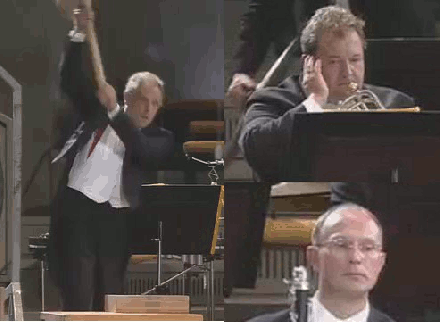BBC National Orchestra & Chorus of Wales – Mahler’s 6th Symphony
St. David’s Hall
Friday 20th January 2017
Shoeing away the awful memories of 2016, we plunge head first into the murky waters of 2017. What’s ahead for us? What sort of wonderful creative projects will we see?
In an all Austrian bill, BBC NOW began the new year in a bold concert featuring in one half their pristine chorus and in the other half a lavish orchestral work.
The chorus began with a solo piece: extracts from Anton Bruckner’s Motets. The large ensemble of singers took some time to arrive on stage and the audience created waves of applauses for them as they all gradually made it on to the stage.
These Motets are a testament to Bruckner’s deeply held religious beliefs. They gleam in the glorious polyphony created between each singer, setting the mood for each one to follow. The Ave Maria (not the famous one by Chopin) was a grand way to end, the choir’s brief time with us. We all wished it it to go on longer.
In a work which could easily take up an entire concert in itself, the 6th Symphony by Gustav Mahler certainly ended the night with a bang. Although I much prefer his 2nd, the last movement of the 3rd and his 5th symphonies, the 6th is a fine example of the huge requirements his music demands. Sitting on the very end of the side stalls, you can easily appreciate just how many players are on the stage, at its largest capacity.
All the Mahlerian tropes are present: the pangs of intense anxiety and woe expressed into the score, the juxtaposed pastoral Alpine merriment; never really knowing which way the music will take you. All this simmers for an hour and a half. Yet, how does he follow his romantic and stirring 5th? The answer is with a symphonic work of less quaintly.
There are no real highlights here, the only famous moment coming in the last movement when one of the percussionists shockingly smashes a huge mallet against a block of wood. This was originally done 3 times, yet old Mahler was superstitious and made the third crash exempt. Off stage cowbells are also a recurring sound, though here they are completely futile and rather annoying. The whole piece just can’t live up to better predecessors.

In this hilarious gif, it depicts the moment when one of the hammer blows are struck. Please note: the jumping music stand and the grimace of the bass clarinetist.
I can proudly say I have almost heard the entirety of all of Mahler’s symphonic work live (including The Song of the Earth and the incomplete 10th Symphony). It now rests on his even larger 8th, dubbed “The Symphony of a Thousand” to complete my list. Although I’m proud of this, I feel his songs, still need to be done more in the Welsh capital. We shall see more of this in BBC NOWs next St. David’s concert.
Bring on Petruska.
Rating: 3 stars
BBC NOW continues with a concert at St. David’s Hall on 9th February 2017, with Roderick Williams singing extracts from Mahler’s Des Knaben Wunderhorn, Wagner’s Tannhäuser Overture/Venusberg Music and Stravinsky’s Petrushka.
Related:
http://thesprout.co.uk/blog/2016/12/09/review-bbcnow-waltons-belshazzars-feast-saint-davids-hall-cardiff/
http://thesprout.co.uk/blog/2017/01/16/tommy-emmanuel-clive-carroll-st-davids-hall-cardiff/
Get involved:
Want to reach thousands of young Cardiffians? Submit your news here or register to become a contributor.
*Want to become a reviewer? Join the Sprout Editorial Group on Facebook or email tom@thesprout.co.uk.
Click here for the next Sprout Editorial Group meeting.
Comment below:
It’s free and quick to comment below but we recommend signing up with your email or as a guest to keep usernames Sprouty and anonymous (and never post personal details!).
If you want more info on staying safe online, check out our online safety section.





